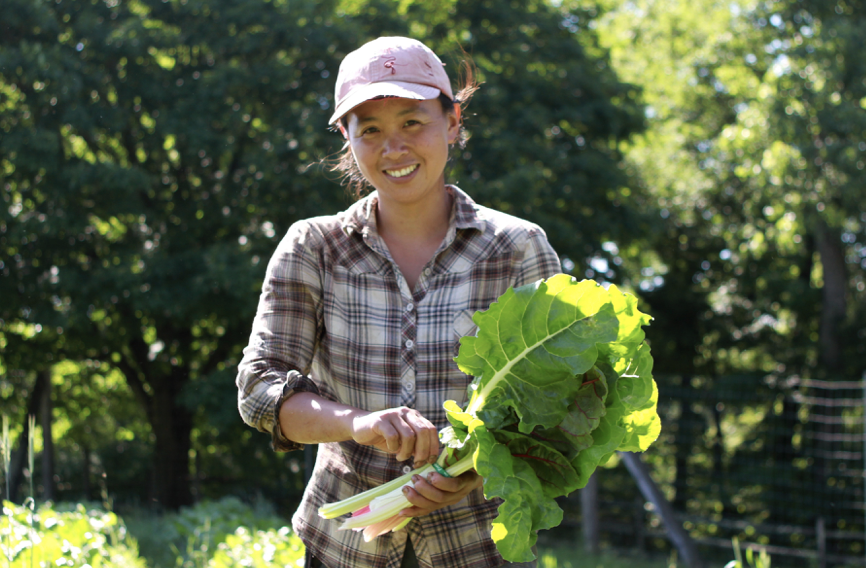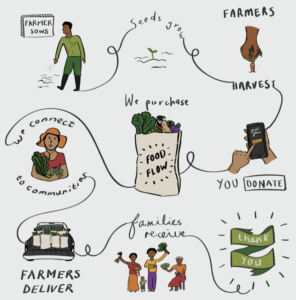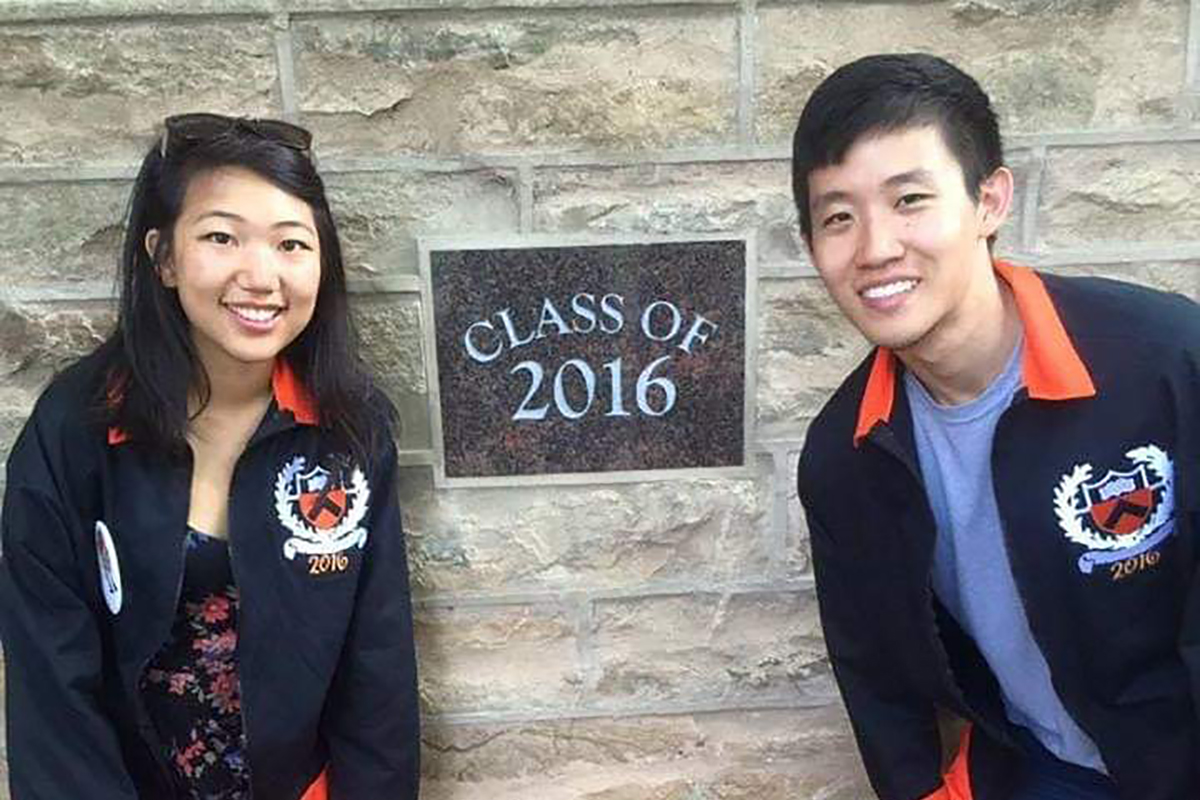
On Monday morning, March 16, Iming Lin ’03 and her team at Meuse Farm woke up to a harsh new reality. The evening before, South Africa’s president declared a national state of disaster in response to COVID-19, closing the schools and imposing restrictions on travel and businesses to slow the spread of the pandemic. Lacking customers, the high-end restaurants in Cape Town that relied on Meuse Farm’s fresh organic vegetables canceled their upcoming food orders. Suddenly, there was no market for the healthy food she and other local small-scale farms had spent months cultivating.
Meanwhile, the economic impact of the virus hit the most vulnerable members of the population hardest. “South Africa has one of the world’s worst savings cultures, so people not being paid for even two weeks means they have nothing,” said Lin, who moved to South Africa after graduation to work for a public health nonprofit before opening Meuse Farm with her husband, Jaco, in 2017. “The existing soup kitchens were overburdened and under resourced pre-COVID, and the new processes of getting food out to those in need is laborious and inefficient, with many waiting a month-plus to see any assistance.”
Lin saw what was happening in her region and recognized an opportunity to help. Within a week, she and colleagues established Food Flow, an organization that connects local farmers with soup kitchens and families who are hungry. With the administrative support of Oxfam South Africa and individual donations, farmers are paid a fair price for their produce and people in need receive healthy produce.
“Food aid is one part of the problem, but we’re trying also to address food livelihoods,” Lin said. “If we can keep farms going, and food producers going, and everybody they employ going, all those people stay out of needing food aid, and the system stays strong.”

Food Flow generated an immediate positive response. More than 300 small-scale food producers from four South African provinces became supply partners, and financial assistance allowed them to provide nearly 9,000 bags of food to hungry South Africans. (Each bag is filled with enough produce to feed a family of four for a week.)
The bags of farm-fresh food are essential because food aid from large scale distributors — who government and corporations often work with — isn’t always as healthy. When Lin met with one of the larger food aid-suppliers, she was told that their metrics for assistance were based on kilograms of food provided. “Basically, their incentive is to supply the cheapest, heaviest food possible — any cheap white starch they can convert into a meals measurement, which is quite depressing,” Lin said.
As Food Flow has grown, Lin said it’s earned a reputation for being responsible and reliable. There already is a long waiting list of farmers and farm groups that want to join up, growth that might become possible if Food Flow can generate additional financial support.
“We’ve been getting quite a bit of feedback from people who say that Food Flow signifies food that’s grown well, is produced well, and that is distributed in an ethical manner,” Lin said.
The program was constructed in a hurry during an unprecedented emergency and intended as a stop-gap measure to help farmers and people in need. But Lin is already thinking that Food Flow might serve a purpose after COVID-19.
“People are kind of looking at us and saying, ‘Okay, what are you going to be doing in the future?’ and also, I think we’re kind of feeling like we can do something in the future,” Lin said. “Farmers tend to be stubborn and have their own view of things, but the camaraderie within the food space has been very positive. I think we underestimated how much people want to feel like they can contribute. And that sensation that they can do something positive is very rewarding and powerful.”
To learn more about Food Flow, visit their website.




